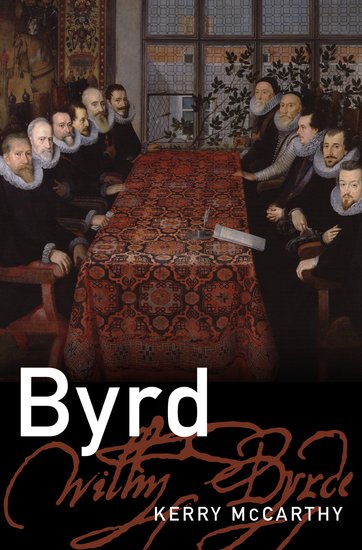The composer William Byrd published the first great English songbook (Psalms, Sonnets and Songs) in 1588. He began his book with an unusual and charming list: “Reasons briefly set down by the author to persuade everyone to learn to sing.”
Byrd’s “reasons to sing” give us a glimpse into everyday musical life in the time of Shakespeare. They reflect some unexpected sides of the composer’s own personality. They also have something to say to music-lovers in the 21st century – whether we enjoy singing in a choir, or with our families, or just in the shower. Here are a few of the items in his list:
“The exercise of singing is delightful to nature, and good to preserve the health of man.”
Byrd wrote elsewhere about his own “natural inclination and love to the art of music, wherein I have spent the better part of my age.” He was born into a musical family. His two brothers Simon and John sang at St. Paul’s Cathedral in London. His sister Barbara married a maker of musical instruments and helped run the shop. All this music-making certainly seems to have kept them in good health. The Byrd siblings were a lively clan, constantly embroiled in political intrigues and shady business adventures. William himself lived into his early eighties — no mean feat in the Renaissance — and kept on travelling and writing until his death in 1623. His eldest brother John surpassed him in longevity, living to the age of ninety.

“It is the best means to procure a perfect pronunciation, and to make a good orator.”
“Procure a perfect pronunciation”: say that three times fast! Byrd may have been speaking tongue-in-cheek when he wrote this line, but he knew the real importance of rhetoric and oratory. He worked with the best authors of his day. He set the words of many Elizabethan poets, including Philip Sidney, Walter Raleigh, Edward de Vere, and a host of characters less familiar to modern readers. Byrd was also familiar with the harsher oratory of the law courts, where he spent so many hours defending his own causes. One of his songs features a comic mock-trial scene with the soprano shouting “Oyez, oyez” — the “Hear ye, hear ye” still heard in some courtrooms today.
“It is a knowledge easily taught, and quickly learned, where there is a good master, and an apt scholar.”
Byrd was a famous teacher of music, and apparently an eager one. He complained at one point, rather disarmingly, that his duties in Queen Elizabeth’s royal chapel cut into the time he had set aside for private teaching. He lived long enough to influence two full generations of English musicians. His teaching was immortalized by his student Thomas Morley in the Plain and Easy Introduction to Practical Music (1597). Morley’s book is written as a lively series of musical dialogues. We see “a good master” (who he freely admits is modeled on Byrd), “an apt scholar”, and that mainstay of Socratic-style dialogue, the dim pupil who never quite gets it right.
“It is the only way to know where nature hath bestowed the benefit of a good voice: which gift is so rare as there is not one among a thousand that hath it.”
This songbook was being sold to amateur audiences, but Byrd pulls no punches here. Not even one person in a thousand, he says, has a truly good singing voice — and he goes on to say that “in many, that excellent gift is lost, because they want (i.e. lack) art to express nature.”
“There is not any music of instruments whatsoever comparable to that which is made of the voices of men, where the voices are good, and the same are well sorted and ordered.”
Although Byrd was a keyboard virtuoso who wrote a lot of music for harpsichord and organ, he clearly had a special place in his heart for singing. We’re lucky to have many beautiful performances of his vocal music at our fingertips. Here is the Agnus Dei from his four-part mass, sung (as it was in his own day) by a small group of “good voices . . . well sorted and ordered.”
Byrd leaves us with a memorable couplet:
“Since singing is so good a thing,
I wish all men would learn to sing.”
Image credit: Image from Early English Books Online. Do not reproduce without permission.


Recent Comments
There are currently no comments.